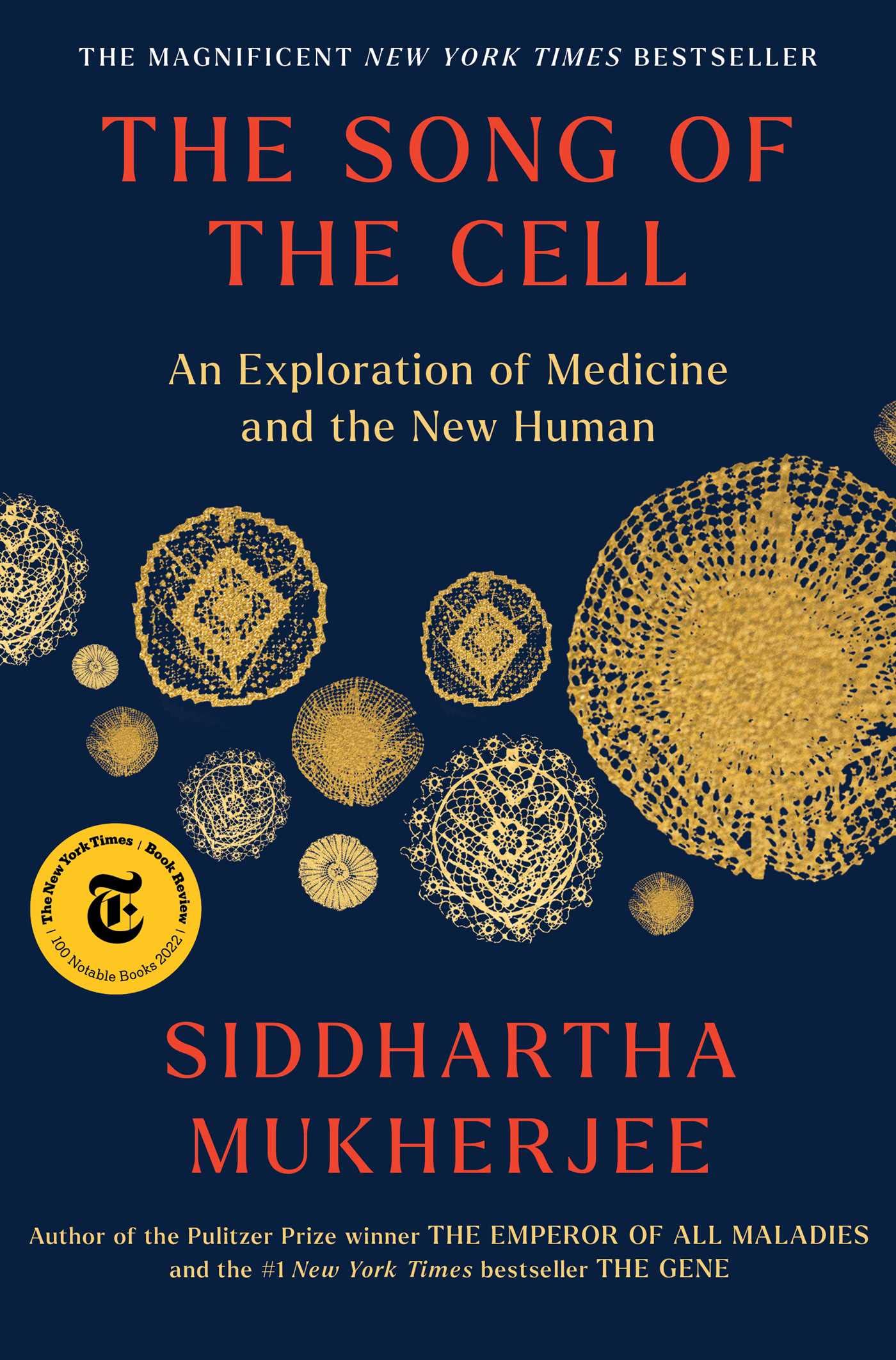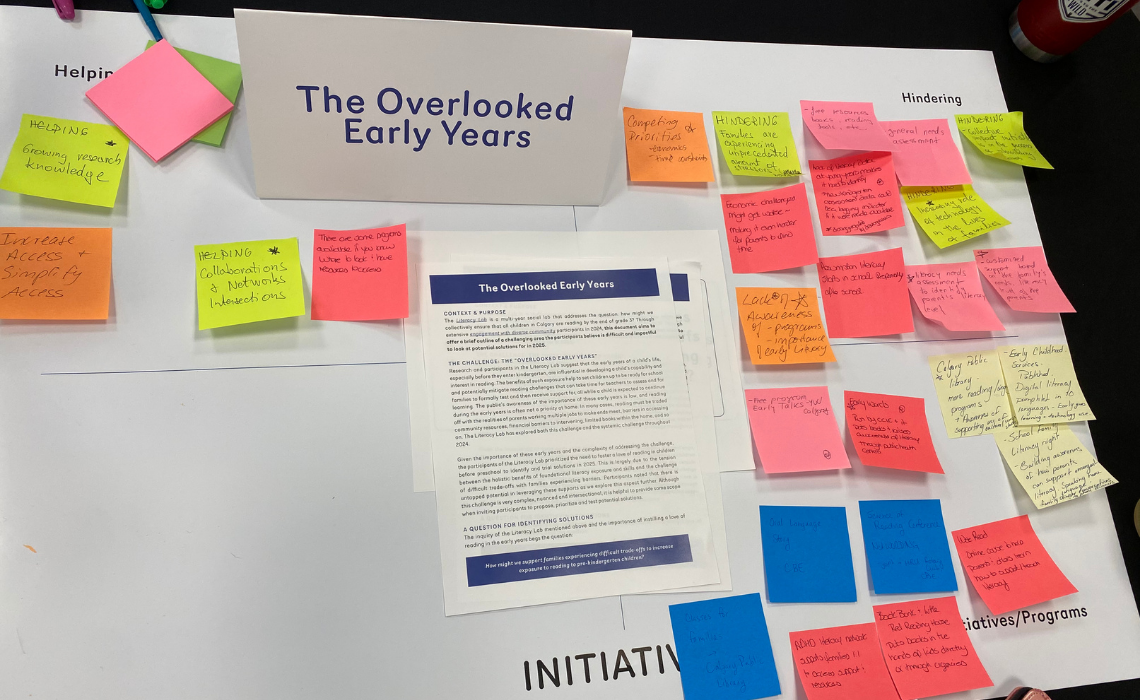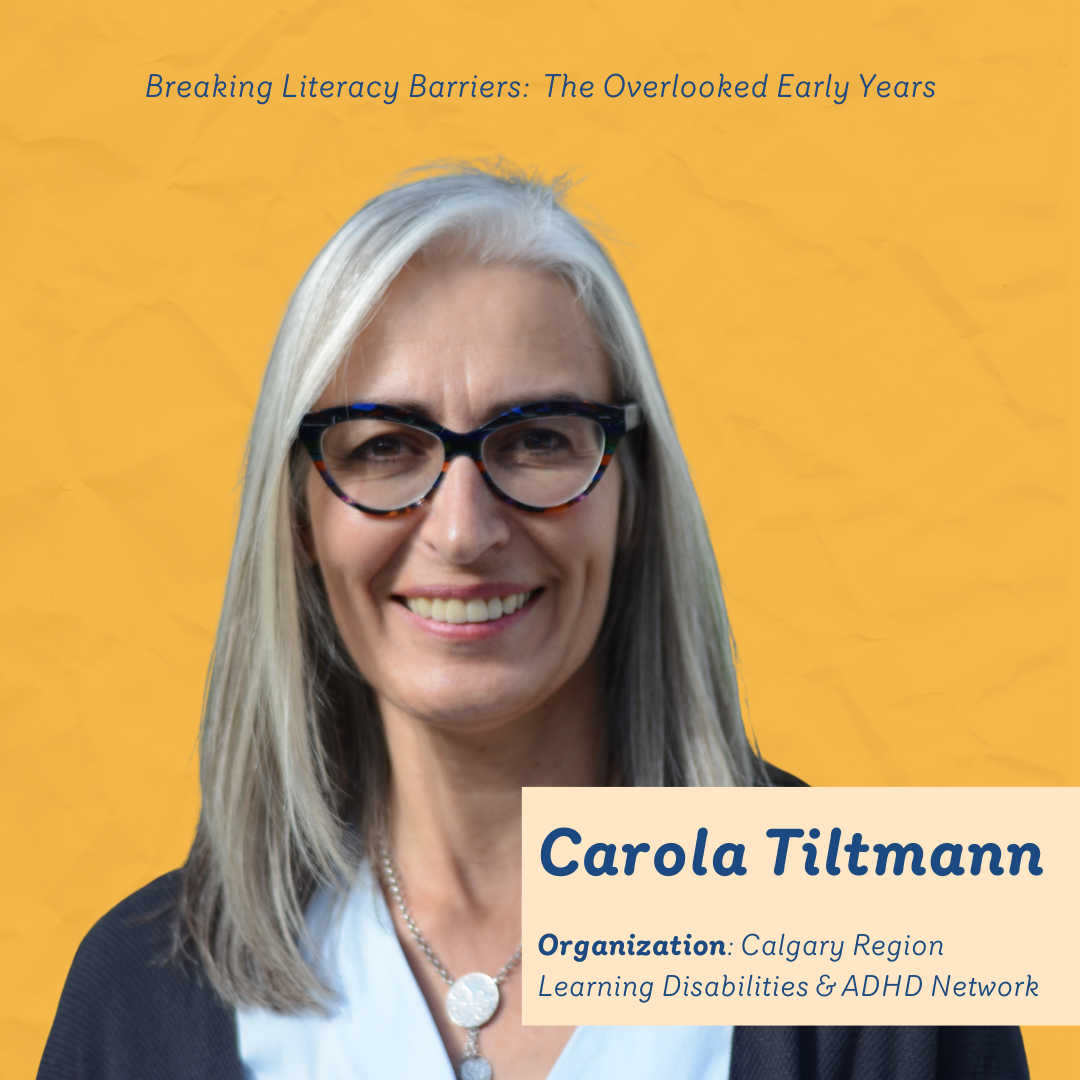Identifying Needs Early to Intervene Early
Across Alberta, children from underserved communities enter school without the necessary literacy foundation. The Literacy Lab has been working tirelessly to address this challenge, and one of its three focuses is the ‘Overlooked Early Years.’ In this conversation, we speak with Carola Tiltmann, a long-time lab participant and lab member passionate advocate working to make sure no child starts their educational journey at a disadvantage.
Understanding the challenge
The Overlooked Early Years refer to the critical period before children enter formal schooling, when many miss out on foundational literacy skills due to limited resources or caregiver awareness. This gap places them behind their peers from the start of their education. By age 9, children need to transition from "learning to read" to "reading to learn," and if they haven’t mastered reading by Grade 3, it creates a lasting barrier to their learning. The Literacy Lab is working on solutions to support families, especially those facing difficult trade-offs, to ensure children have access to early literacy development. One such initiative, the Festival of Early Words, aims to raise awareness and equip caregivers with tools to foster language-rich environments at home.
Exploring with Carola Tiltmann
Carola Tiltmann has been an educator in Alberta school systems for more than 30 years. Starting out as a teacher for students with special needs in both public and private systems, she then became a school administrator but always stayed in touch with the realities of the classroom by continuing to teach. Carola now directs her passion and energies to managing the activities of the Learning Disabilities & ADHD Network. Among other roles, she acts as a resource navigator for the public.
You’ve been with the Literacy Lab since the very beginning. What inspired you to get involved?
One of the things we feel at my Network is that learning disabilities don’t have the kind of visibility that they need to, especially in the school system. With the Lab looking at how we ensure that all children can read by the age of eight, I thought this was right up my alley, especially surrounding the advocacy the Network hopes to do surrounding teacher training.
As part of the ‘Overlooked Early Years’ group, what challenges have you encountered?
When kids start school and struggle, their parents and teachers think that they just need time–they’ll be okay. Before you know it, a couple years have gone by and the child is really struggling. They’re starting to have real issues–mental health issues, behavioural problems… We want to be in a position to help parents before all that starts, before the child has these issues that everyone now has to backtrack and throw a ton of resources at to get that child up to speed. It takes a lot longer to change mental health, behavioural, and emotional issues associated with delayed assessment and diagnosis. So it’s very much about early identification leading to early intervention.
And if parents know about these things they can push harder, because nobody is going to want as much for their child as a parent will. But they’re not going to know what they need if they don’t have the awareness and information to start with.
What’s the proposed solution, and how do you think it will help?
First, it’s an awareness raising piece. One of the things the overlooked early years is also focusing on is those furthest from opportunity. Many of the parents potentially also have a lot of their own learning challenges. So while they might recognize them in their children, if nobody was able to advocate for them, they don’t know how to go about doing that for their child. They might just say, well, maybe it runs in the family. And that’ll be the end of it. They don’t know this might be a learning disability and they can advocate, right? And there are things that can be done.
If the focus is more on “What can I do for my child?” I’ve found that a lot of people are more willing to think about what they can do for themselves as well. They don’t want what happened to them to happen to their child.
If the focus is more on “What can I do for my child?” I’ve found that a lot of people are more willing to think about what they can do for themselves as well. They don’t want what happened to them to happen to their child.
What has been your biggest takeaway from working with the Literacy Lab?
I really appreciated one of the first activities–we passed around a ball of yarn and made a ‘spider’ web with an Elder. A touch on one string vibrated throughout the whole web. I thought it was really impactful. I tend to promote a certain idea because it’s a solution we know will work. Though other ideas also sound good, I sometimes get fixated on just the one solution. The web experience helped me to be more open.
I appreciated one of the things Lena got us all to understand at the beginning–that we may all have our own individual goals and what we might end up doing with the lab won’t reach those goals… but what we are doing is always moving in the right direction. I really liked that, you know, that there are always moving pieces and it’s never going to be static enough for you to pinpoint one particular thing to work on, but are you always moving in the right direction? That has sort of guided me the entire way through.
What have you been reading this summer?

The Song of the Cell – An Exploration of Medicine and the New Human by Siddhartha Mukherjee
The literacy lab is coming to a close! The showcase will mark the end of the lab, but the story is far from over. The literacy ecosystem have been and will continue to work tirelessly to ensure that kids have the support they need to learn how to read.
Literacy Lab



